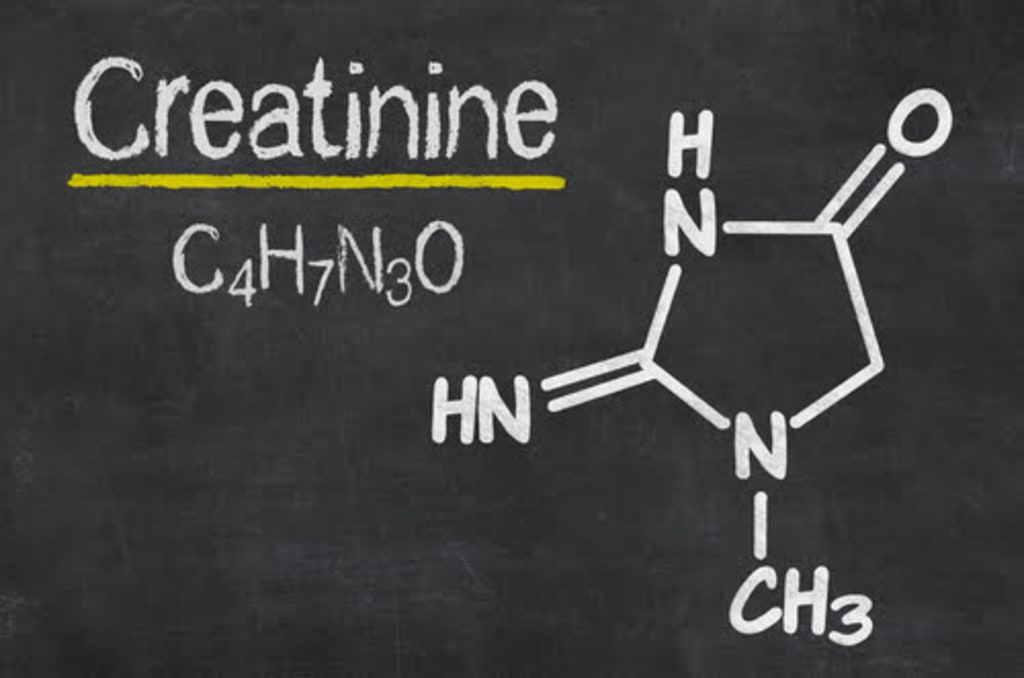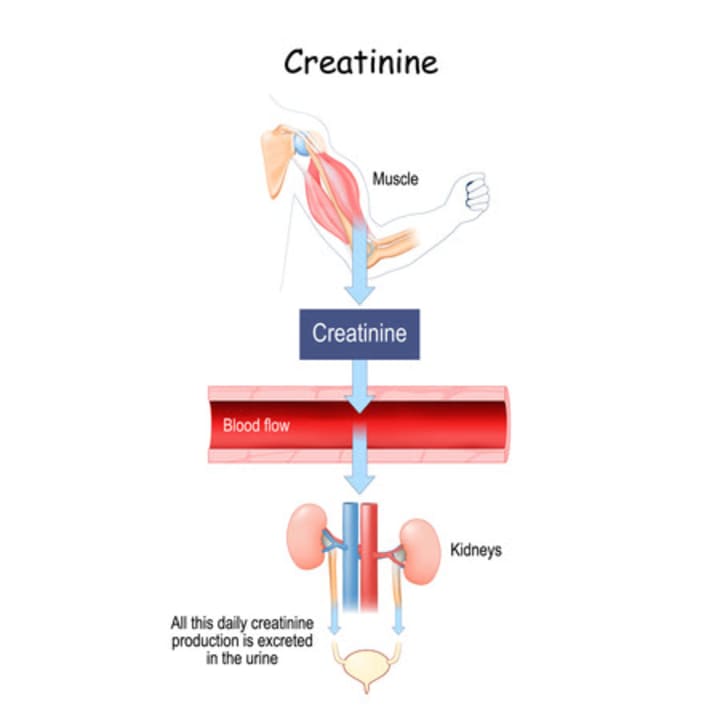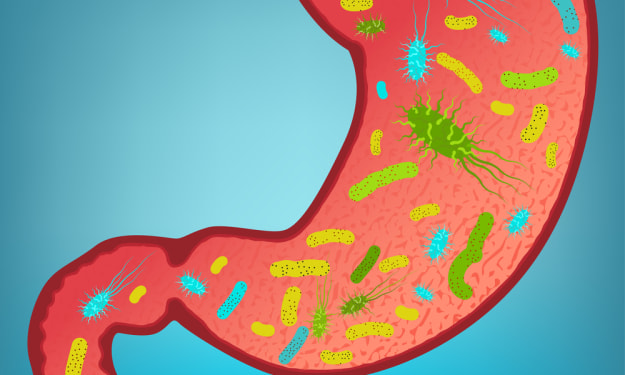All You Need to Know About the High Creatinine Range
Best Creatinine Treatment in Ayurveda

What Is Creatinine?
Creatinine is a waste compound that generates from the normal wear and tear of muscles. When we consume meat and dairy products, the liver produces creatine, a substance that is used by the muscles for energy. The body uses the portion of its needs while the rest of the portion is converted into creatinine, a form of waste. This creatinine is then sent to the bloodstream and to the kidneys for excretion during the blood filtration process.
Everyone has some amount of creatinine in their blood. But the amount of creatinine is dependent on your age, sex, body size, and the diet you are taking.
Why Is It Important To Measure Blood Creatinine Range?
It is the kidneys that maintain the blood creatinine in a normal range. Creatinine has been found to be a significator of how well your kidneys are working. If your kidneys are not healthy, they will function impaired, which means waste will start to accumulate in the blood. One such waste in the blood is creatinine. It is for this reason healthcare uses serum creatinine to measures the functionality of the kidneys.
To accurately get the measurement of kidneys, it is checked that how much creatinine is cleared from the body by the kidneys. Creatinine clearance can estimate the rate of filtration by the kidneys.
Another test the doctor use is blood urea nitrogen. Urea is also a form of waste that ought to be eliminated by the kidneys. If the BUN level is quite high, your doctor may do several other tests to clarify if it is kidney disease, the root cause. BUN may temporarily rise for a variety of reasons, such as dehydration. Recently, changes in creatinine levels in infants are also linked to bacteremia, while elevated levels in adult males have been linked to the risk of prostate cancer.
Based on both the tests, the BUN to creatinine ratio generally gives the doctor a more clear picture of the kidneys and their functionality. In all such cases, it is important to take creatinine treatment in Ayurveda.
Why it’s done
- To monitor if you have signs linked to kidney disease or not
- In those with diabetes, high blood pressure, or other conditions linked to kidney damage
- To monitor the progression of kidney disease or see if the treatment is working
- To monitor if a transplanted kidney is working well
What Is The Normal Blood Creatinine Range?
There are a variety of factors that affect the blood creatinine range in individuals. In men, the normal range is expected to be between 0.6 to 1.2 milligrams per dL, while in women, the range is a little low and between 0.5 to 1.1 milligrams per deciliter.

If your blood creatinine range is not normal, perhaps you may need the best creatinine treatment in Ayurveda.
What Are The Symptoms Of High Blood Creatinine?
Having a high creatinine is not a problem in itself; rather, it points out some ongoing kidney disease. The signs of high creatinine are similar to chronic kidney disease.
These signs may include:
- Feeling dehydrated,
- Fatigue,
- Swelling (edema),
- Shortness of breath,
- Confusion,
- Frequent and painful urination,
- Urine that is foamy or bloody,
- Nonspecific symptoms such as nausea, vomiting, neuropathy, and dry skin
- Bone and mineral disorder
- Anemia
- High blood pressure
- Pain in the chest
What Are The Causes Of The High Creatinine Range?
Any condition or disease that likely affects your kidneys is bound to affect your creatinine range as well. What important is to understand whether the underlying cause is chronic or acute. Recent elevations can still be treated and reversed easily. But for longstanding conditions such as diabetes, high blood pressure, etc., creatinine treatment in Ayurveda is the best solution.
Common causes include:
- high blood pressure
- diabetes
- Certain drugs such as cimetidine [Bactrim] can result in abnormally elevated creatinine range
- Large consumption of dietary meat can also affect your creatinine range. So, your diet also affects the creatinine range.
- Infections in your kidneys also impact your blood creatinine range.
- rhabdomyolysis
- urinary tract obstruction
Ways To Lower Creatinine
Apart from the ayurvedic treatment, creatinine can also be brought down using some preventive measures. They are as:
Hydration
Temporary levels of creatinine may also spike up if you are dehydrated for a long time.
Consume more fiber
Fiber impacts your kidney function by letting the toxins be removed naturally.
Eat less protein
Protein impacts your kidney function as they load the kidneys. Instead, you may want to switch to a plant-based diet.
Do not take creatinine-based supplements
Several supplements have creatine in them, and athletes consume them to improve their energy levels. In fact, too many of them can put your kidneys at risk.
Do not add too much salt to your food
Excess salt can contribute to high blood pressure. This is why patients with compromised kidney function are not allowed to consume processed foods as they are coated with sodium. Fluid retention due to salt can also affect your kidneys’ capacity to function.
Avoid alcohol
Alcohol also influences the kidney’s capacity to perform blood filtration right. So, it is advised that you should drink alcohol in moderation that is not bad for your health.
We advise patients to rely on the best creatinine treatment in Ayurveda if they want to slow down the progression of kidney disease.

More Information: - kidney and Ayurveda
Contact Us: - [email protected], +91-9871712050






Comments
There are no comments for this story
Be the first to respond and start the conversation.